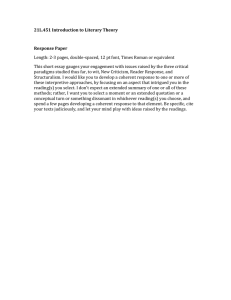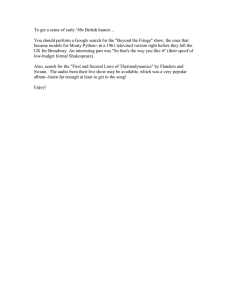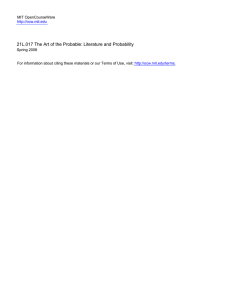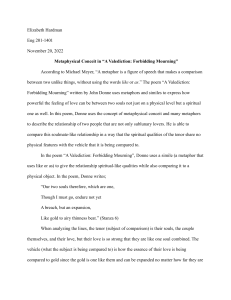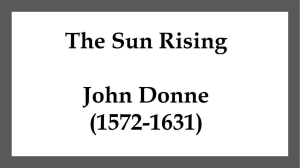21L.004 Reading Poetry
advertisement
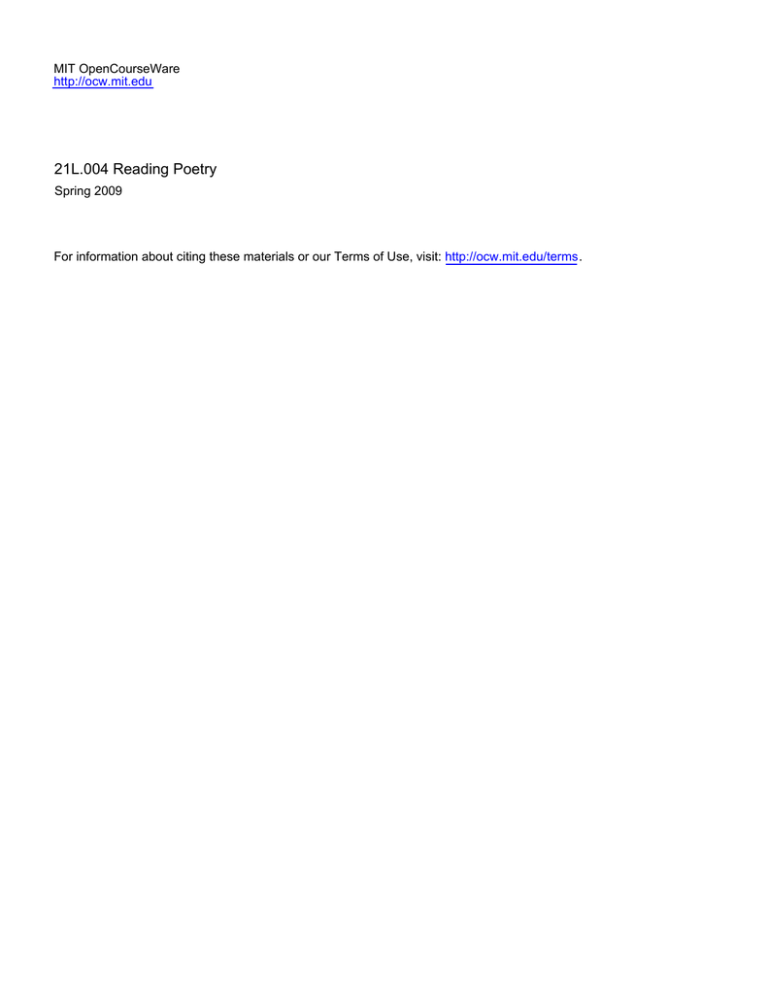
MIT OpenCourseWare http://ocw.mit.edu 21L.004 Reading Poetry Spring 2009 For information about citing these materials or our Terms of Use, visit: http://ocw.mit.edu/terms. Reading Poetry 21L.004.02 Vaeth Paper #2; Group A due SES #11; Group B due 2 days after SES #12 Paper #2 Because poems happen in time, like music, they must change. As readers, we’re in a different place by the end of a poem. What changes? What is its fulcrum? Write a 3-5-page paper about one of the following poems: Stevens’ “The House Was Quiet and the World Was Calm”; Hopkins’ “Pied Beauty”; Donne’s “Holy Sonnet 14.” You have been noticing such elements as tense/time, pronoun/point of view, sentences (the grammatical structures) and such other things as repetitions and patterns of syntax and of emphasis, shapes, parts, abstract/concrete (the rhetorical structures). You have your own primary response to the poem; and you now have some basic terms of literary description and analysis. You need not worry about covering the poem completely; this is usually summary or paraphrase. Never follow the order of the work. The order of the paper is the order of your idea. Speaking the language of the poem will make you aware of the relationship among its parts and is your essential evidence and authority. Be willing to move beyond announcing that something exists (there’s a rhyme scheme; there’s an image, it has sentences) by showing it and by telling your readers why/how it matters. Trust the approach of many readings and making plentiful concrete observations as an invaluable endeavor for the work of the paper; giving yourself time to internalize the poem so that you can then speak its language with authority is the goal of our work this semester. It is important to remember that it is YOUR idea about a work that deserves expression and development; you are not obligated to explain Donne’s idea or Stevens’ idea but you are responsible for explicating YOUR idea about Donne or Stevens. One of the goals of an academic paper is to persuade an audience of readers (your intelligent classmates) to understand what you think is essential.

